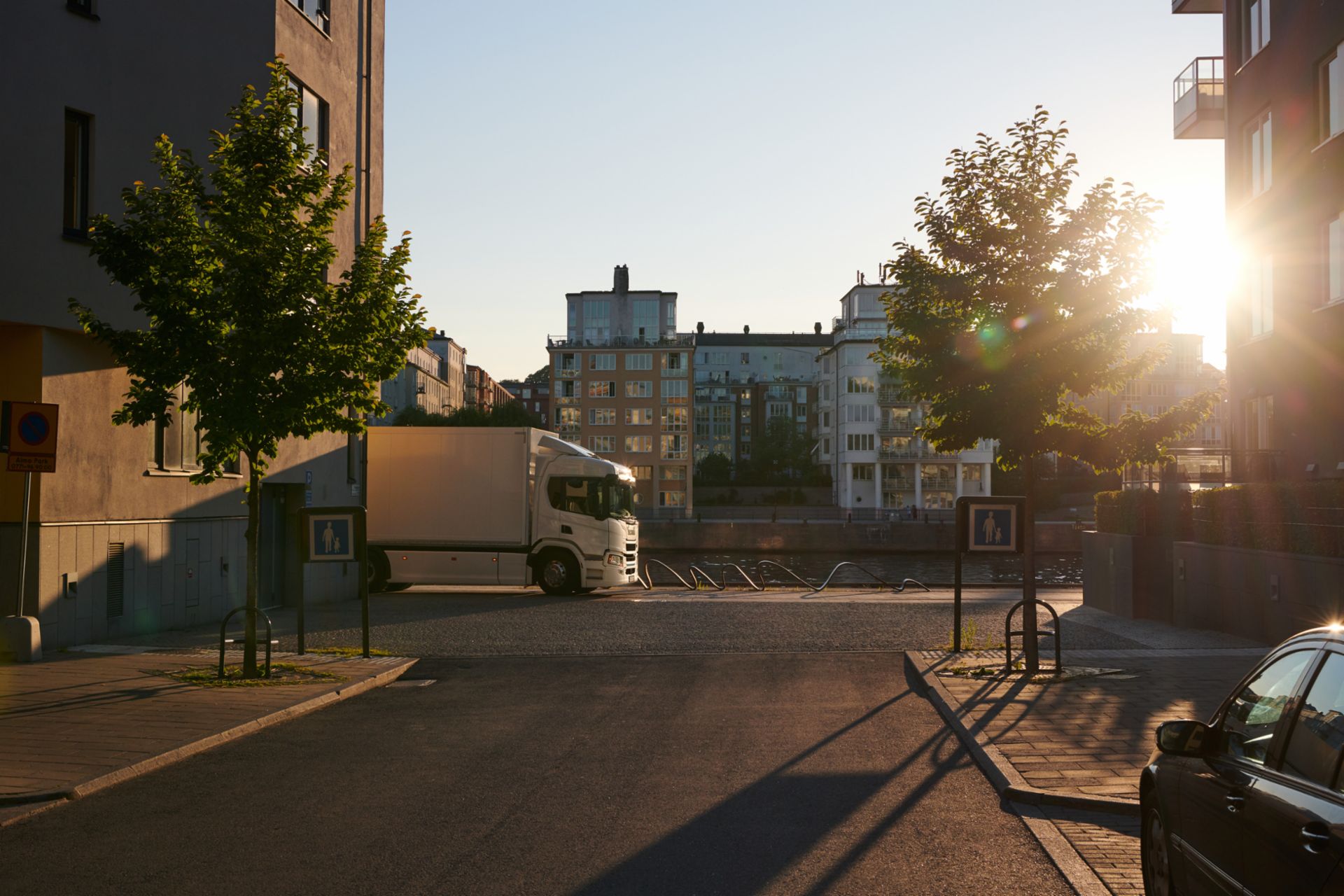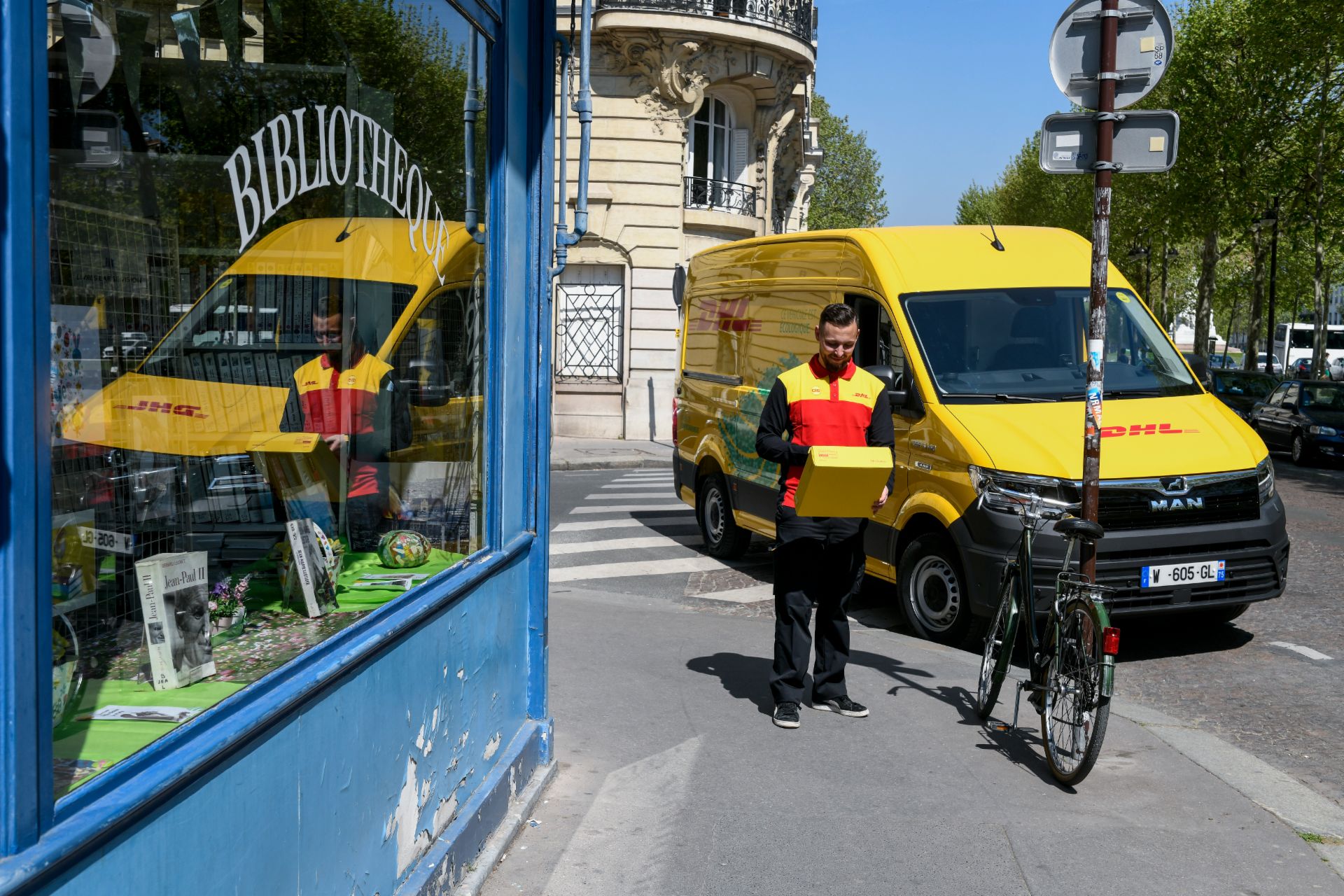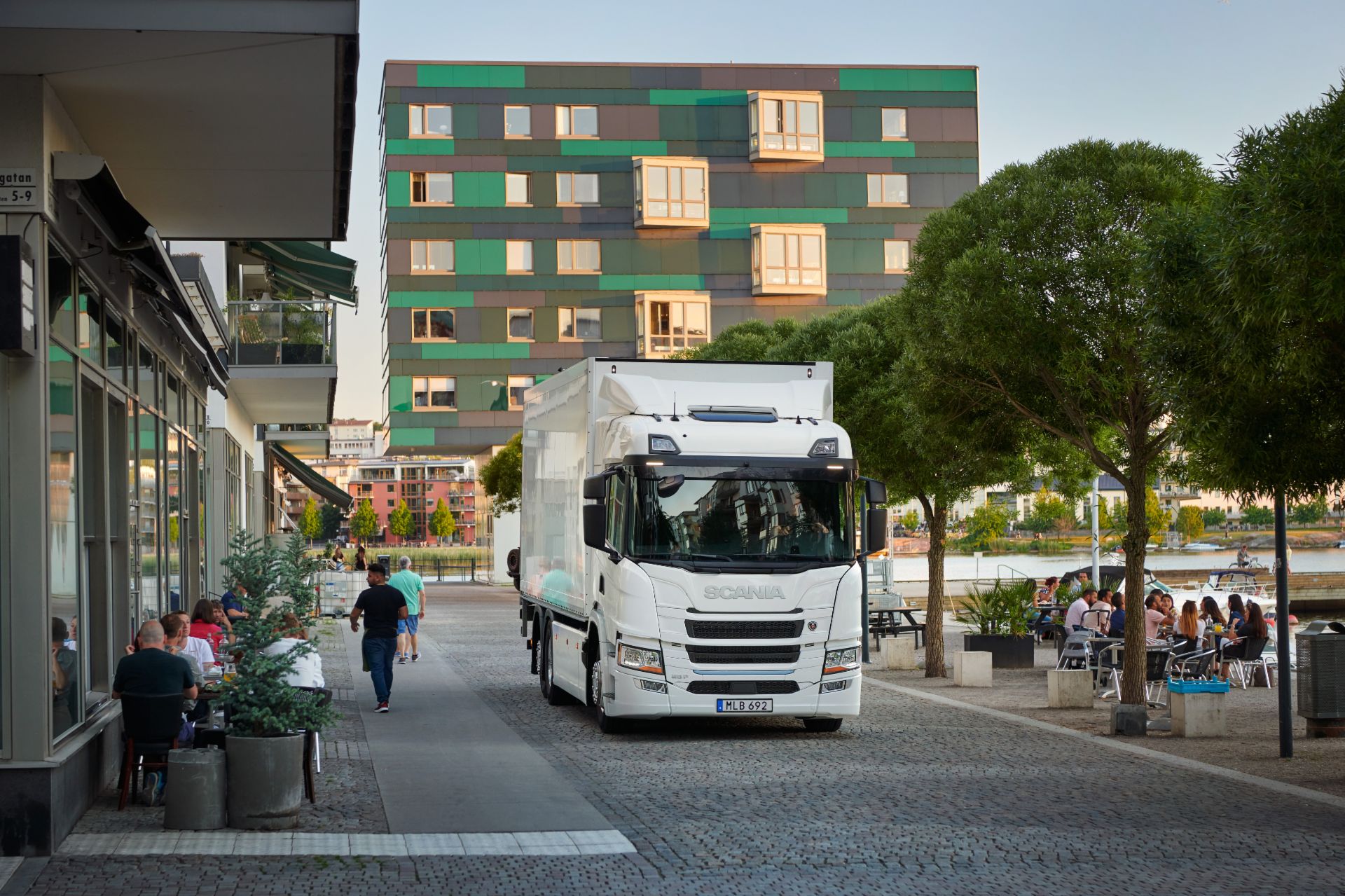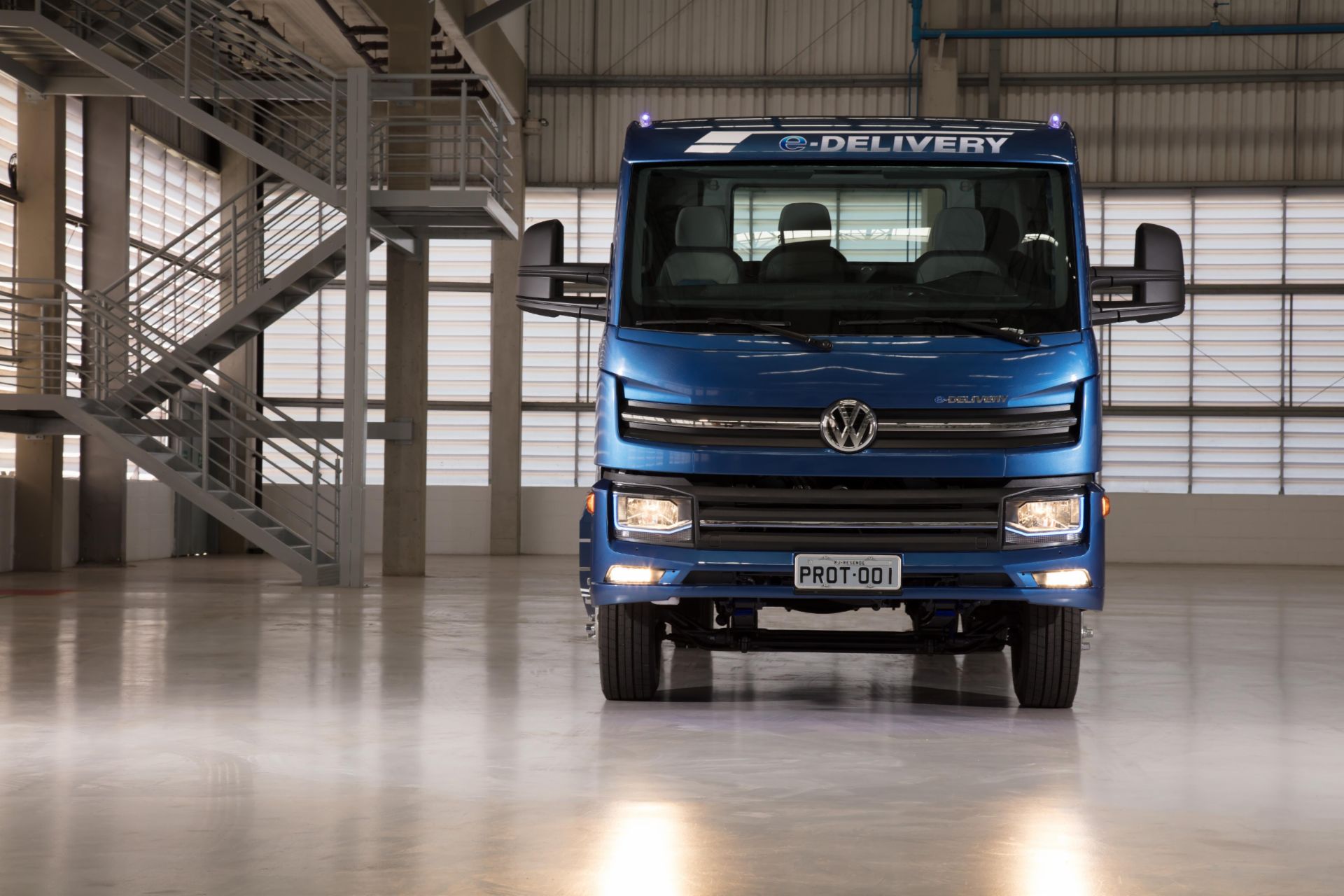It was a weekend of record sales. Never before have so many customers clicked “Buy” online between Friday and Monday than during the last November weekend of 2020. On Black Friday alone — the traditional bargain-hunting day after Thanksgiving — the 80 biggest online retailers in the US sold goods in the amount of 5.4 billion dollars, 22.3 percent more than last year. The following Cyber Monday saw customers spend a whopping 9.4 billion dollars online — making it the biggest shopping day in US history. And the more we click “Add to cart” when shopping with online retailers, both big and small, the more packages we send on their journey. A global flow of parcels that is constantly getting bigger. In Germany alone, e-commerce grew by 279 percent in the decade up to 2019. And yet, booming online retail is under threat from analog limitations. Especially in last-mile delivery, the final kilometers a parcel travels to its destination. Traffic jams, streets with no parking spaces, bans on diesel vehicles to improve air quality are making delivery increasingly difficult.
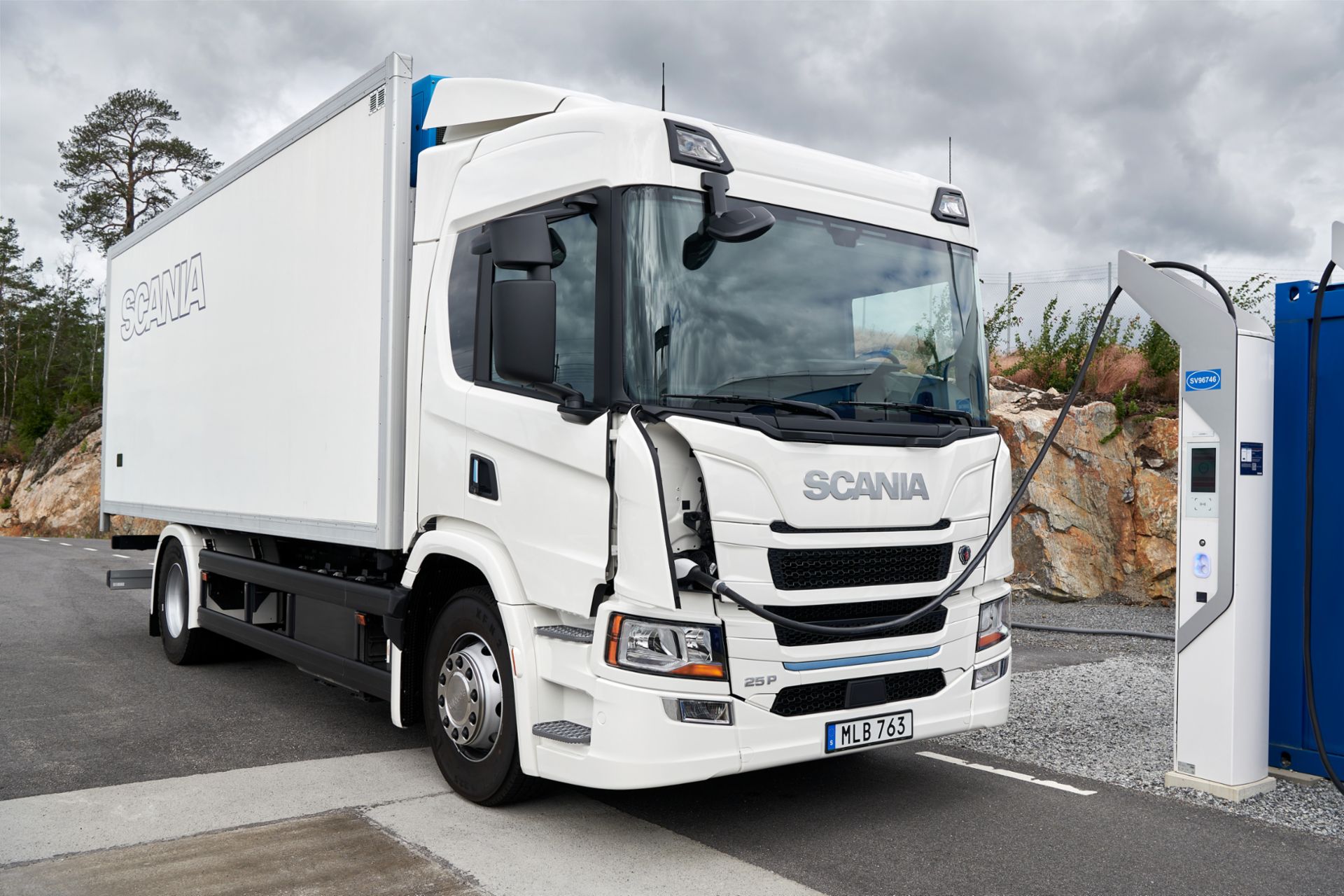
Innovative solutions are needed to transport parcels from A to B in a more intelligent and, most importantly, eco-friendlier way. Electric mobility is one of the key technologies to make this happen. For a long time, however, making a profit with electric vehicles was a major challenge for transportation and logistics companies. That is now changing. A growing number of logistics companies are adding electric vehicles to their fleets, an eco-friendly and quiet solution for navigating inner-city streets. Just like more and more electric scooters, electric car sharing services, or electric city buses get people to where they want to go.
Tax incentives, government subsidies, but most importantly significantly lower operating costs thanks to technological progress now make purchasing an electric van an economically viable investment. Electric vehicles may even drive profitable growth for companies who have made a clear commitment to sustainability. Many companies are starting to realize that long-term growth will not be possible without a rigorous sustainability agenda. It is increasingly common for e-mobility to pay off.
The TRATON GROUP’s commitment to electric vehicles also plays a role here. Our brands are already supplying efficient electric vehicles, especially for goods distribution and last-mile delivery. With its electric eTGE van, MAN Truck & Bus offers an ideal vehicle for parcel services. Scania recently began selling a purely electric distribution truck. And Volkswagen Caminhões e Ônibus (VWCO) will shortly be launching a particularly flexible electric city van, the Brazilian e-Delivery. All of them solutions customized to our customers’ needs.
“If we can switch our entire vehicle portfolio to sustainable operation, so can other large passenger and freight transportation companies.”Heinrich Coenen, head of the internal BVG fleet
Only recently, for example, the Berliner Verkehrsbetriebe (BVG) public transportation company commissioned five flexible MAN eTGE vans. “We want to be e-mobility pioneers,” says Heinrich Coenen, head of the internal BVG fleet. “If we can switch our entire vehicle portfolio to sustainable operation, so can other large passenger and freight transportation companies.” In turn, Coop, Denmark’s largest retail chain, is speeding up the electrification of its fleet with the acquisition of a new battery-electric distribution truck from Scania. “The green energy transition in the transportation business is still too slow,” explains Nicolaj Boysen, Coop’s Supply Chain Director. “This is why we want to show: there is another way.”
Innovative and sustainable solutions are urgently needed — and not just in Europe or the US. The challenge of constantly growing transport volumes is a global one. Black Friday, for example, is not the only consumption festival in online retail — it is not even the biggest. Singles’ Day on November 11 in China is considered the biggest shopping day in the world. This year saw the delivery of goods in the amount of around 100 billion euros, spread across approximately two billion packages. That is twice as much as in 2019.
The brands of the TRATON GROUP already supply their customers with electric vehicles for a variety of urban applications. What matters in this context is that these solutions are also cost-effective. After all, they have to earn our customers money. This, of course, is true for all sectors of the transportation and logistics industry. In these areas, our brands are also working hard to create more innovative sustainable solutions. Our mission is to play an active role in shaping the transition to a sustainable transportation system for the good of society and the environment, but also for the benefit of our customers.
